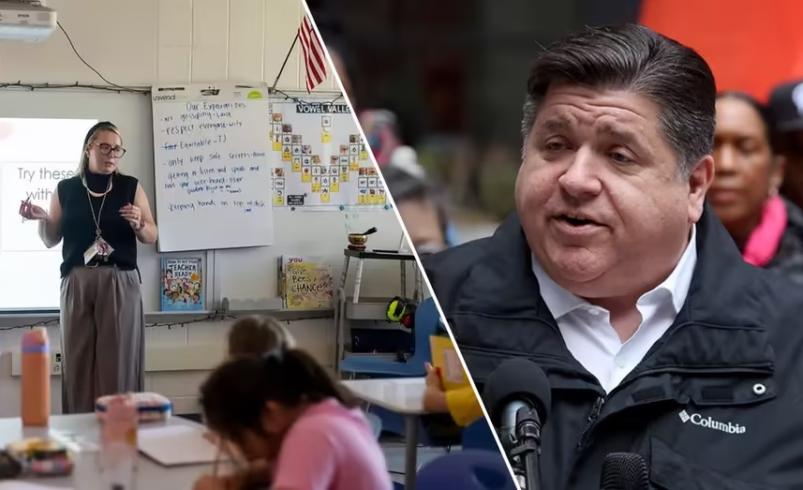Illinois Faces Backlash Over Mandatory Mental Health Screenings for Students
- August 8, 2025
- 0

Illinois Governor J.B. Pritzker has signed a groundbreaking law mandating annual mental health screenings for public school students in grades three through 12. This initiative, set to begin in the 2027–2028 school year, aims to identify early signs of mental health issues such as depression, anxiety, and trauma. The screenings will be conducted using digital or paper forms, with parents having the option to opt their children out.
While supporters argue that early detection can prevent crises, the policy has sparked significant backlash. Critics, including parents, policy experts, and lawmakers, warn that it may overstep boundaries and wrongly label children. Abigail Shrier of the Manhattan Institute has been vocal about her concerns, suggesting that the policy could lead to false positives and unnecessary mental health interventions.
Katherine Boyle from Andreessen Horowitz has also expressed worries about government overreach and the potential influence of what she terms the “mental health industrial complex.” She highlights that if a school nurse or mandated test indicates a child is unwell, families might unquestioningly accept this diagnosis.
The Illinois State Board of Education is tasked with developing screening tools and guidelines by September 2026. These screenings are not intended to be diagnostic but rather to flag students who may need further evaluation. State Superintendent Tony Sanders emphasizes the importance of shifting from reaction to prevention in addressing student mental health.
The law has also faced opposition from Republican lawmakers like Rep. Steve Reick and Rep. Adam Niemerg, who express concerns about potential insurance implications and parental rights. Despite these criticisms, State Sen. Laura Fine, a lead sponsor of the bill, believes the screenings will help normalize mental health care for children and teens.
As Illinois prepares to implement this controversial policy, debates continue over its potential benefits and drawbacks. The initiative represents a significant step in addressing student mental health but also raises questions about privacy, parental rights, and government intervention.